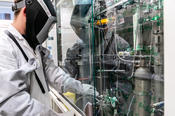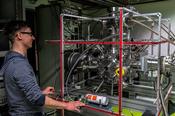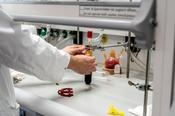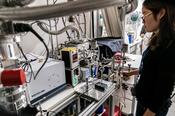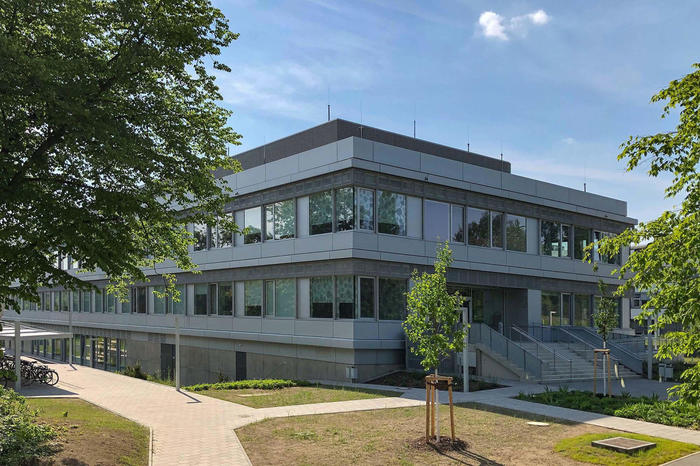Department of Biology, Chemistry, Pharmacy
Service Navigation
Looking for a Master’s Degree Program in Chemistry?
What you need to know, in a nutshell:
Freie Universität offers three different master’s degree programs in the field of chemistry, each tailored to meet specific educational and professional goals:
- The M. Sc. Program in Chemistry is designed to further deepen theoretical and practical skills in Chemistry, while also delving into the latest methods and techniques employed in chemical research.
Chemical research spans a wide spectrum, ranging from investigations into radioactive metals for their applications in nuclear medicine, to the complete synthesis of natural compounds, and the advancement of novel synthesis techniques. This field is dedicated to exploring the properties, transformations, and functionalities of various substances. From quantum mechanics to density functional theory the Master’s Degree in Chemistry encompasses a wide range of theoretical knowledge. - The M. Sc. Program Polymer Science is an interdisciplinary program created and administered by Freie Universität Berlin (FU), Humboldt University Berlin (HU), Technical University Berlin (TU) and University of Potsdam (UP). Polymer Science encompasses chemical, physical, engeneering, processing and theoretical aspects, with significant implications for modern materials science. Its primary objective is to lay the groundwork for the creation and characterization of polymeric materials, as well as to understand the relationships between their structure and properties.
More detailed information can be found on the website of Polymer Science. - For those pursuing a career in teaching at integrated secondary schools, the M. Ed. Chemistry degree program is specifically designed to build upon the foundational subject knowledge and pedagogical skills acquired during their undergraduate studies. More detailed information about this program can be found on the website of the Dahlem School of Education (DSE).
The Master’s degree program focuses on the current state of research concepts and experimental as well as theoretical methods used to examine, describe, and predict the structure and behavior of atoms, molecules, and solids. This includes synthesizing complex molecules and analyzing molecular associations.
The program also covers theoretical and instrumental methods for analytical detection and structural elucidation, along with the necessary theoretical backgrounds for understanding and applying them.
Research projects apply these methods and concepts to current topics explored within research groups. The elective courses within the Master’s degree program provide opportunities for interdisciplinary connections between chemistry and fields such as mathematics, physics, biology, medicine, and materials science.
Topics for specialisation modules include:
- Analytical Chemistry
- Inorganic Chemistry
- Biochemistry
- Macromolecular Chemistry
- Organic Chemistry
- Physical Chemistry
- Theoretical Chemistry
- Environmental Chemistry
For an overview of the contents of the Master’s Degree Program and the Standard Curriculum Plan, please click here.
The Master’s degree program in chemistry welcomes students to start their studies in either in the winter or summer semester from the beginning of April or the beginning of October.
All information on deadlines for applying, registering, and enrolling can be found on the central “Application and Admission” pages of Freie Universität Berlin.
You can find out more about the admission requirements for the Master’s degree program Chemistry on this page.
10 Reasons why to study Chemistry at Freie Universität Berlin
- Internationally acknowledged research groups
- Collaborative and interdisciplinary research
- Teaching collaboration with lecturers from other universities and non-university institutions
- Elective modules from other disciplines e. g. medicine, pharmarcy
- Support for starting and finishing your studies
- Active student representatives that organize events and a café (german website)
- Numerous opportunities to study abroard
- Modules and initiatives concerning sustainability (initiative "Blooming Campus")
- Attractive and modern infrastructure in a green setting
- Lots of leisure activities on campus
